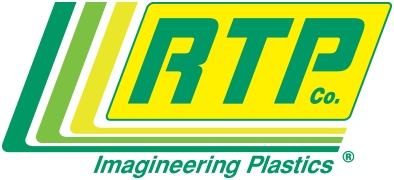Search Case Studies
End-Use Case Study
- Flexible Liner Extends Life of City Water Tank
 Like many towns in the 1930s, Ada, Oklahoma (population 17,000) built its two potable water tanks partially underground for structural support. Over the years the aging concrete deteriorated, so the city decided to line the failing tanks to prevent leaks.
Like many towns in the 1930s, Ada, Oklahoma (population 17,000) built its two potable water tanks partially underground for structural support. Over the years the aging concrete deteriorated, so the city decided to line the failing tanks to prevent leaks.
Ken Kane, Plant Manager for Fab-Seal Industrial Liners, Inc., stated, “To maintain the integrity of the concrete tank for a longer period of time, a PVC liner system was installed using an RTP Company Sheet & Film Division supplied material that is FDA compliant for long-term contact with potable water. The liner is RF sealable during onsite installation and is certified to NSF/ANSI Standard 61 for Drinking Water Systems.”
The 40 mil PVC liner system, custom made for the Ada tank, was 240 ft long by 240 ft wide by 25 ft deep with 144 columns (73 m x 73 m x 7.5 m). “To give an idea of the size,” said Kane, “the city of Ada’s eight tennis courts were located on the roof of the tank.” Both tanks were surveyed and dimensioned to create a detailed site plan.
“RF (radio frequency) sealing was done on individual sections at the factory. These sections were then rolled and taken to the site for installation,” explained Kane. “The fact that the liner system was RF sealable was very important. RF sealing basically melts the two surfaces lapped together into one piece using radio waves to generate the heat required to melt the PVC.” Like a large jigsaw puzzle, the sections were then installed and further heat-sealed according to the site plan.
The PVC liner material uses a non-DEHP plasticizer to make it flexible so that it installs easily. “As a fabricator,” said Kane, “the consistency in the width of the material and its flexibility are very important. With the RTP Company material, the liner easily conformed to the floor and sidewall slope, allowing a better fit.”
An important advantage of the RTP Company material is that it is extruded rather than calendared. According to Peter Ploumidis, General Manager of RTP Company’s Sheet & Film Division, “Extruded films are a little more expensive to produce but have much more consistent properties.” RTP Company’s exacting cast film extrusion process ensures that the products have superior quality, no pinholes, and greater uniformity. “With industrial liners, uniformity is critical,” added Ploumidis.
According to Kane, a coating system would not have solved the problem of cracking in the concrete. “A coating is not flexible enough to permanently seal over the cracks and it would eventually crack itself, whereas the PVC liner has a 350% elongation factor and would prevent that problem by flowing into the crack area.”
Fab-Seal filled cracks in the concrete with a flexible caulk, then applied geotextile material over all the surfaces before installing the liner. “The padding material is a spun polyethylene product that was originally designed to be placed under asphalt paving,” explained Kane. “The liner then conforms to the contours of the tank.”
A year after the liner installation was complete, Fab-Seal returned to conduct a routine inspection of the tank. “We found everything to be in fantastic shape,” said Kane. “Lining the old concrete tanks will add years to the entire water system and prevent the immediate need to spend more dollars on the construction of new tanks. It is saving the city a lot of money.”
Fab-Seal of Shawnee, OK is a custom manufacturer of flexible membrane liners for a wide variety of industrial applications. For more information visit www.fabseal.com.




